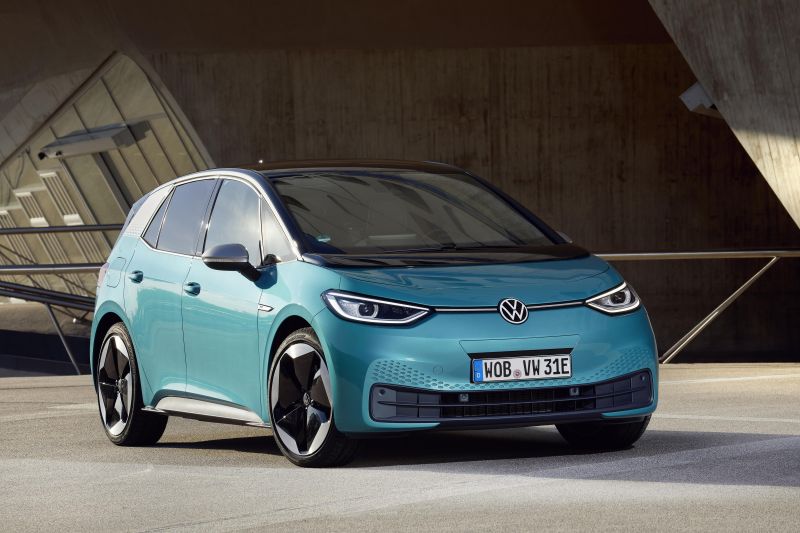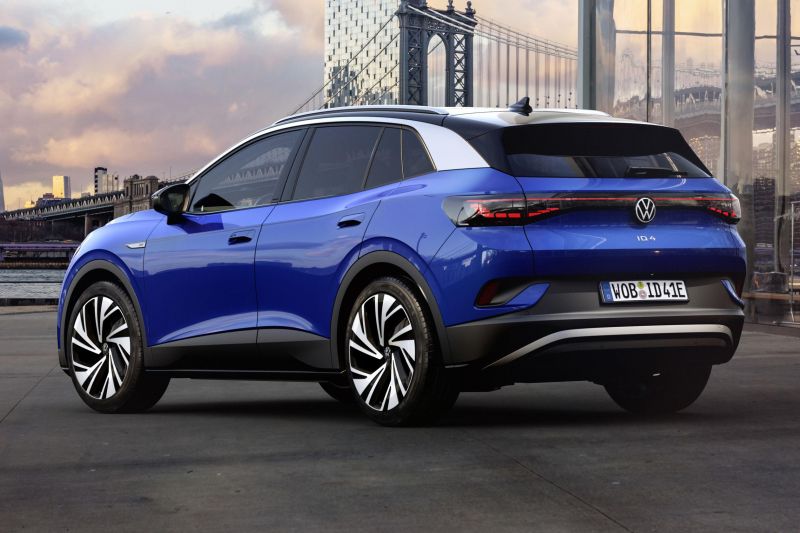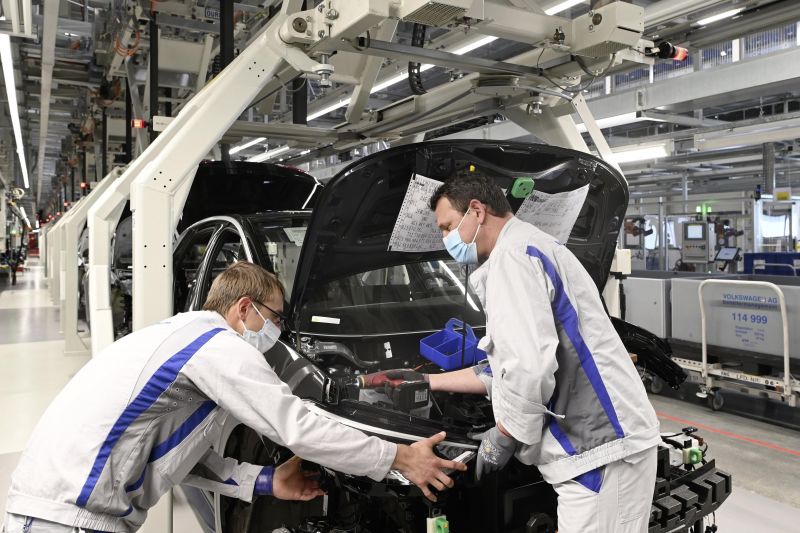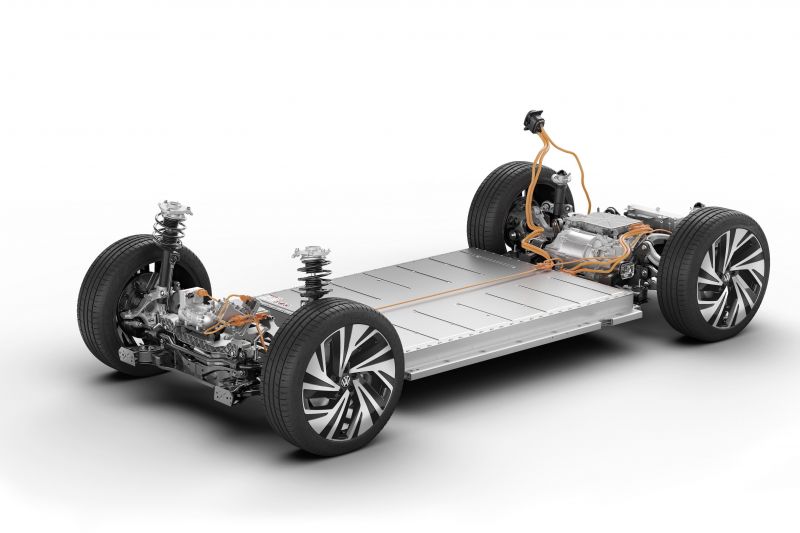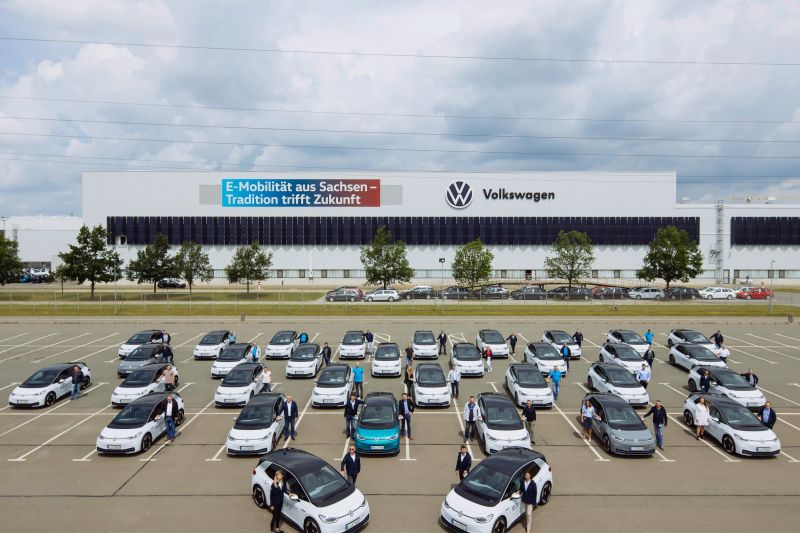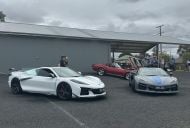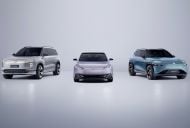The pure-electric Volkswagen ID.3 hatch and its ID.4 SUV sibling are currently at least three years from launching in Australia.
The company cites Northern Hemisphere demand and Australia’s lack of CO2 targets as reasons we keep getting pushed back in the production queue.
We’ve previously reported an expected launch year for the ID family of 2022.
This news comes as the ID.3 – which was first to market from the Volkswagen Group’s family of vehicles built on the MEB platform – topped Europe’s electric sales charts by finding more than 10,000 buyers in October. It was also the outright best-selling car in Norway.
It’ll be due for a mid-life facelift at this rate before Australians get a crack of their own.
With no plug-in hybrids (PHEVs) on the cards, it means Volkswagen will not have any electrified models on sale to its local customers for some time to come.
Michael Bartsch, Volkswagen Australia managing director, this week provided the news that will no doubt be a disappointment to local electric vehicle enthusiasts.
“We really don’t have a definitive answer for you,” he said.
“Our expectation at the moment is that we’ll see the ID.3 or ID.4 – whichever one comes first in Australia – in the latter part of 2023. I’m not being deliberately vague on that, it’s simply that we don’t yet have a firm introduction date.
“That doesn’t mean that we won’t have one by then. It’s simply unclear at the moment what the global launch program will be for that car because the first imperatives are the European, American and Chinese markets, the northern hemisphere – particularly Europe.
“[That’s] because of the legislative requirements on CO2 [emissions] and the penalties that come in terms of not meeting the output limits. The challenge is ramp up, is supply.
“And of course, while we have a legislative environment or whatever it is that you’d like to describe it, here in Australia, there really is no imperative to fast track or drive the EV introductions in Australia.
“We will be introducing EVs through one of our sister companies, Audi [E-Tron is already on sale here], but the high-volume product initially will be addressing the European market.
“That’s why we’re fairly hopeful that we start seeing some, I guess, stronger guidelines from the government here. Because if we see a legislative environment change here in Australia then of course that in itself could add impetus to pull the EV introduction for all manufacturers, not just for Volkswagen, but for everybody.”
Mr Bartsch serves concurrently as deputy chair for the Federal Chamber of Automotive Industries, which this year introduced its own manufacturer-driven, voluntary CO2 emissions targets in order to get the ball rolling on firmer, enforceable emissions targets.
MORE: Emissions targets explained, Q&A with FCAI chief executive Tony Weber
Essentially, multiple large automakers are battling to make enough EVs to satisfy demand from countries with tight emissions standards. When they look at Australia where there are no such requirements, the incentive to allocate precious factory supply to us is sometimes not there.
Of course, many brands do offer electric vehicles in Australia, and Volkswagen might well pay a price for being unable to include itself among these early adopters – even if it would prefer the reality to be otherwise.
On a related note, as you can read here, Mr Bartsch this week slammed “parochial state treasurers” in South Australia and Victoria over their “crazy” plans to impose mileage taxes on electric vehicle (EV) owners.
“We have always said we don’t expect incentives, we don’t expect anyone to pay for vehicles to come to market, incentives invariably create distortions,” he told us.
“But certainly we’re absolutely against disincentives.
“It simply doesn’t make sense when on the one hand we’re talking about the imperative of addressing the issues of global warming, but before the products even hit the market and before they even have a chance of getting a foothold, very parochial state treasurers are deciding that we should tax them.”
Longer term beyond the ID.3 and ID.4, an ID.1 and/or ID.2 are expected slot in underneath and will use a new ‘Lite’ version of the company’s MEB electric vehicle architecture with batteries up to 45kWh in capacity.
Volkswagen CEO Ralf Brandstätter says the company is targeting a starting price of €19,834 (A$32,089).





